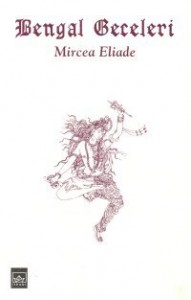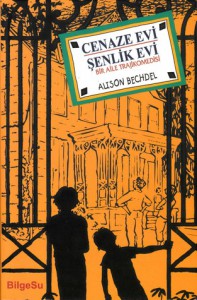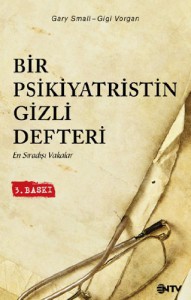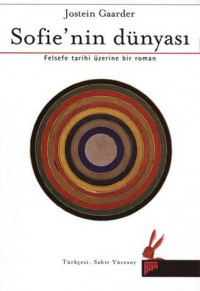Google Olsa Ne Yapardı?
 I can't tell you how happy I am to be done with this book. Since I cannot let a book go without finishing it, this one became an obstacle that prevented me from moving on to other books. It was so repetitive and hollow that I wanted to punch the author for wasting my time and money.
I can't tell you how happy I am to be done with this book. Since I cannot let a book go without finishing it, this one became an obstacle that prevented me from moving on to other books. It was so repetitive and hollow that I wanted to punch the author for wasting my time and money.The main idea of the book is really interesting and worth delving into, because what Google does is truly great. But Jarvis shouldn't be an author, or, he shouldn't write books. I'm sure he's doing fine writing his blog and all, but the book was a pain to read. First of all, two thirds of the websites and products mentioned in the book has some ties with Jarvis, whether it's a startup he's involved with, or an institution he's been teaching. He doesn't sound very sincere, he uses the book to market things that will benefit him. He always intervenes whenever the narration gets fluent by saying "(blah blah blah) is a company I invested in. The other, I'm on the board of directors. And this one is my son's company." Dude, I'm not here to listen to the list of companies you've worked for. Then the last half of the book turns out to be very unnecessary because it just repeats the first half under the pretense of interpreting the ideas into reality (which doesn't happen). The last half basically reads "yada yada yada".
I'm so super glad I'm done. All of the brilliant ideas in this book, you probably know already.
Kendimize Uygun İşi Nasıl Buluruz
 I bought the book after I graduated from college, as I was confused about what I wanted from life career-wise. I had spent some time thinking, but couldn't get any further. The book does provide some new ways to think and experiment, but in the end, it's just a book, and not a revolutionary one at that. It only gives some ideas to explore.
I bought the book after I graduated from college, as I was confused about what I wanted from life career-wise. I had spent some time thinking, but couldn't get any further. The book does provide some new ways to think and experiment, but in the end, it's just a book, and not a revolutionary one at that. It only gives some ideas to explore.It has its moments, though, when it discusses the situation and the reasons: It acknowledges that we're a more restless generation compared to our parents, we want more out of life at the expense of being ungrateful for what we have. It says that too much freedom can be paralyzing, when you have countless options to choose from (You can be a data analyst, or should you move to Italy and teach English? Maybe you should go back to school and get an MBA). It discusses what gives meaning to a job. And, it also suggests that a part-time job might be the best thing ever because it balances work and free time. Hmm.
If you're looking for something tangible and not just philosophical exploration, instead of this, I recommend Quora's Life Lessons topic, where people share their experiences and discuss better ways to live. It's so much more inspirational and motivates you to do what you want to do.
Oliver Twist
 First of all, wow. It was not what I thought it was. I'm ashamed to admit, but yes, I read it at age 24. (But in retrospect, it was a good thing; I believe I got more out of it now that I'm a little older.) All these years I thought Oliver Twist was about this mischievous but cute little orphan boy running around, getting into all kinds of adventures and trouble. No sir. It turns out it is about this cute little orphan boy and everyone around him being miserable all the time. And it turns out it talks about other characters more than it does about Oliver Twist. His life is just the basis of the book. So it's not what I thought, but much more.
First of all, wow. It was not what I thought it was. I'm ashamed to admit, but yes, I read it at age 24. (But in retrospect, it was a good thing; I believe I got more out of it now that I'm a little older.) All these years I thought Oliver Twist was about this mischievous but cute little orphan boy running around, getting into all kinds of adventures and trouble. No sir. It turns out it is about this cute little orphan boy and everyone around him being miserable all the time. And it turns out it talks about other characters more than it does about Oliver Twist. His life is just the basis of the book. So it's not what I thought, but much more.Where do I begin? It's a masterpiece, for sure. Dickens' sarcastic tone is very entertaining throughout the book, and it mocks nearly everything told in the book, particularly England's laws and some cruel people from the middle class. The story is smotheringly gloomy until two-thirds of the book, which from then on improves drastically. It felt like watching Dogville, where in the end, the bad people are punished one by one, very dramatically, in a very satisfying way .
The characters do talk a bit comically, though, as if they are caricatures rather than real people. And the story has a lot of extremes, too sad for a moment, then too happy. But hey, it was 1800s, right? And Dickens does really write fantastic.
I want moar Dickens!
Yaşlı Adam ve Bürokratlar
 Pe strada Mântuleasa is an enjoyable book similar to, although much much shorter, [b:One Hundred Years of Solitude|320|One Hundred Years of Solitude|Gabriel García Márquez|http://d202m5krfqbpi5.cloudfront.net/books/1327881361s/320.jpg|3295655] and [b:The Arabian Nights: Tales from a Thousand and One Nights|93101|The Arabian Nights Tales from a Thousand and One Nights|Anonymous|http://d202m5krfqbpi5.cloudfront.net/books/1320518022s/93101.jpg|859375] in writing and concept. Zaharia Fărâmă is a primary school director with tons of interesting stories about the lives of some of his students; his only problem is that he cannot (or will not) tell these stories concisely. The stories are fascinating and of interest to certain government officers, who keep Fărâmă under arrest. In the end, the storyline unfolds in a both fulfilling and leaves-you-wondering way. I liked how all those seemingly unrelated events were entwined in each other. It's a pleasant read for a lazy afternoon.
Pe strada Mântuleasa is an enjoyable book similar to, although much much shorter, [b:One Hundred Years of Solitude|320|One Hundred Years of Solitude|Gabriel García Márquez|http://d202m5krfqbpi5.cloudfront.net/books/1327881361s/320.jpg|3295655] and [b:The Arabian Nights: Tales from a Thousand and One Nights|93101|The Arabian Nights Tales from a Thousand and One Nights|Anonymous|http://d202m5krfqbpi5.cloudfront.net/books/1320518022s/93101.jpg|859375] in writing and concept. Zaharia Fărâmă is a primary school director with tons of interesting stories about the lives of some of his students; his only problem is that he cannot (or will not) tell these stories concisely. The stories are fascinating and of interest to certain government officers, who keep Fărâmă under arrest. In the end, the storyline unfolds in a both fulfilling and leaves-you-wondering way. I liked how all those seemingly unrelated events were entwined in each other. It's a pleasant read for a lazy afternoon.
Bengal Geceleri
 Maitreyi is a memoir about the love between Mircea Eliade and an Indian girl named, well, Maitreyi. Here's a little context: Although he is named Alain in the book, the story is real and Eliade copies from his own journals. The real-life Maitreyi learns about the book years later, and learns about what the book tells even later than that. Eliade and Maitreyi run into each other in the US much later in life, and she makes him promise that the book won't be published in English (It obviously does, though it's after Maitreyi's death). It's an interesting fact that Maitreyi wrote a play in reply to this book, telling the events from her perspective.
Maitreyi is a memoir about the love between Mircea Eliade and an Indian girl named, well, Maitreyi. Here's a little context: Although he is named Alain in the book, the story is real and Eliade copies from his own journals. The real-life Maitreyi learns about the book years later, and learns about what the book tells even later than that. Eliade and Maitreyi run into each other in the US much later in life, and she makes him promise that the book won't be published in English (It obviously does, though it's after Maitreyi's death). It's an interesting fact that Maitreyi wrote a play in reply to this book, telling the events from her perspective.The book was enjoyable, but I'm not sure if it's Eliade's writing or it's just that something worth telling happened to him. I don't know how much of the book is made up, but the story is very interesting in itself, so Eliade didn't have to try hard for that. Although, I have to admit he does a good job describing the sights of India and how it felt to be in love with and make love to Maitreyi.
I'm annoyed with everyone in the book. At the beginning, like his peer European and Anglo-Indians, Eliade despises Indians and sees them as ignorant, dark-skinned (thus inferior) people. Even after moving into Mr. Sen's house, he cannot admit that he finds Maitreyi attractive, because he's expected to find her repulsive. He can only confess (to himself) he likes the Sen family after months of living with them. During their flirtation, he latches onto every single detail he can find to belittle Maitreyi in his journal, as if to convince himself she's not someone that deserves to be loved. And in a craze of lust, he lies to both himself and Maitreyi that they will get married. He gets what they've been both waiting for, and when things go sour, he leaves without a single word.
He can't be a man and stand up for his love. Much like the notorious Humbert Humbert, he cleverly conceals his cowardice behind excuses like "being honourable, keeping his promise to Mr. Sen" and "to avoid upsetting Maitreyi any further". He even has the nerve to say that he was trying to free himself from Maitreyi's love when he sleeps with Jenny Isaac during his recluse. Just admit it, you're a man, and you're not thinking with your brain. Ugh. And Mr. and Mrs. Sen? Despite having evil plans of adopting Alain and moving to England where they can "live like rajahs", they kick him out without a moment's notice. Poor Maitreyi is the only one without ulterior motives, but she's the victim of her own romanticism. She cannot get a response from Alain to her major sacrifices, because he doesn't share her grand visions of love and spirituality. He gets what he wants, then bolts. What a sad story.
Satranç
 This was definitely 5 stars in general, but 4 stars for me. I lacked the emotional connection to the story which most reviewers seem to have experienced. I'm not sure why, but I couldn't empathize with Dr. B.'s torment. I did appreciate the author's superb analysis of the mind, though. There's no doubt about the psychological accuracy and analytic perfection.
This was definitely 5 stars in general, but 4 stars for me. I lacked the emotional connection to the story which most reviewers seem to have experienced. I'm not sure why, but I couldn't empathize with Dr. B.'s torment. I did appreciate the author's superb analysis of the mind, though. There's no doubt about the psychological accuracy and analytic perfection.
Cin: Hazine
 After 4 books, it's still not clear if Kim seeks the Sultan's treasure or the sensation of being a genie. She says she isn't after the treasure, but she sure acts like it. But I think that's the book's lack of ability to convey a clear message, rather than an exciting mystery about the plot. Then again, the plot of Djinn has never been strong. In the end it's just a comic with beautiful (and very much naked) women and men in exotic settings.
After 4 books, it's still not clear if Kim seeks the Sultan's treasure or the sensation of being a genie. She says she isn't after the treasure, but she sure acts like it. But I think that's the book's lack of ability to convey a clear message, rather than an exciting mystery about the plot. Then again, the plot of Djinn has never been strong. In the end it's just a comic with beautiful (and very much naked) women and men in exotic settings.
Cenaze Evi/Şenlik Evi
 Fun Home is an autobiography in which Alison Bechdel narrates the story of her childhood and teens, focusing on discovering her sexuality and her relationship with her gay father. She is from a little Pennsylvanian town, and she grows up a tomboy. She leaves her town to go to college, and there she realizes she's gay. Upon coming out to her parents, her mother reveals her father's gay too.
Fun Home is an autobiography in which Alison Bechdel narrates the story of her childhood and teens, focusing on discovering her sexuality and her relationship with her gay father. She is from a little Pennsylvanian town, and she grows up a tomboy. She leaves her town to go to college, and there she realizes she's gay. Upon coming out to her parents, her mother reveals her father's gay too.The book begins very promising and enjoyable, with the interesting subject and Bechdel's analysis of herself and her father and her mother. She likens their lives to various book plots, and that is attractive up to some point. But it seems that the latter half of the book is built on James Joyce's Ulysses, comparing every single thing about her relationship with her father with the book's characters' relationship; most of the details eluded me because I haven't read Ulysses. I just skipped some parts towards the end. It's loaded heavily with references to Odysseia and Ulysses and Henry James books and Fitzgerald books from the beginning, but in the end it becomes smothering.
Other than that, the plot doesn't seem to be carefully crafted, because I found it to be repeating the same things over and over again. The book could've been shorter and more concise, rather than talking about the same points every two chapters. Also, the drawings weren't original and engaging enough to make up for the tiring narrative.
I had high hopes for this one, I'm disappointed. Is it such a big deal because it deals with homosexuality and being open with yourself and such? I wish somebody had said so, instead of praising the story or the style. I'm all for LGBT and gay rights, but I would have spent my money on some other book.
Gazap Üzümleri
 Before I read Grapes of Wrath, I was just hoping for insights about the Great Depression; but now that I read it, I realize what the book talks about is, unfortunately (and sometimes fortunately), very much contemporary. At least, it is in Turkey.
Before I read Grapes of Wrath, I was just hoping for insights about the Great Depression; but now that I read it, I realize what the book talks about is, unfortunately (and sometimes fortunately), very much contemporary. At least, it is in Turkey.Grapes of Wrath is set in 1930s, when a big drought has affected Oklahoma and many other states, therefore driving the tenant farmers from their homes. Hundreds of thousands hungry people pack up whatever belongings they have left, and set out to find the promised jobs in the west, only to find out their desperation is being used to lower the wages. You see, clever farm owners have found out that if there is an unbelievable amount of hungry people desperate to feed their families, you can lower the wages as much as you like, because they'll accept the jobs no matter what. The rich keep getting richer, and the poor keep getting hungrier and angrier.
The book follows the Joad family to explain the tragedy of the "Okies". Tom Joad returns from prison and catches his family just before they leave for California. They live on the road in first half of the book, and they try to live in California in the other half.
The reason I said what the book talks about is unfortunately contemporary is, I see the trend of "The rich get richer, the poor get poorer" in almost everywhere in the world. And like we see in the book, the way to get richer is to screw the poor. Being from a developing country (Turkey, to be specific), I'm very much familiar with economic inequality. The two reasons of economic inequality in the book are man's inhumanity to man and lack of unions. Of course, the latter is no longer valid, but the former pretty much is. And I think this quote from the book is what fascinated me the most:
And the great owners, who must lose their land in an upheaval, the great owners with access to history, with eyes to read history and to know the great fact: when property accumulates in too few hands it is taken away. And that companion fact: when a majority of the people are hungry and cold they will take by force what they need. And the little screaming fact that sounds through all history: repression works only to strengthen and knit the repressed. The great owners ignored the three cries of history.
This is what's happening now. Sure, the owners, -politicians and the other immensely rich-, have greater means to repress people now. But as we are seeing now in protests all over the world, Turkey, Brazil, Egypt, Greece - people are sick of being repressed, being ignored, being screwed. And from this desperation, comes something the rich don't have: Humanity. This is what we fortunately have in common with the book. Just like poor "Okies" on the road and living in Hoovervilles helping each other whenever they can, and never losing their kindness, protesters behave in a way we've long forgotten. From what I've seen in Turkey's Gezi Park protests: The more gas canisters thrown at the protesters, the kinder the protesters become. The more violence they're shown, the more flowers given to the police. Double the tragedy, you're quadrupling the solidarity. Yet the government still isn't ashamed.
All these "great owners" should stop and ask themselves, can they continue for long? Because in the souls of the people the grapes of wrath are filling and growing heavy, growing heavy for the vintage, that I can say.
New York Köleleri
 Slaves of New York is made up of individual stories about people in the art scene in the 80s. The characters are very original, with some reccurring ones: Eleanor the jewelry designer, and Marley the "genius" painter. For me, the downside was the length of this book made up of unrelated stories. I wasn't enthusiastic about continuing after the first half because I knew there wasn't going to be any character development or plot twists I could be excited about. There were only many peeks inside lives in New York, similar to the ones before them.
Slaves of New York is made up of individual stories about people in the art scene in the 80s. The characters are very original, with some reccurring ones: Eleanor the jewelry designer, and Marley the "genius" painter. For me, the downside was the length of this book made up of unrelated stories. I wasn't enthusiastic about continuing after the first half because I knew there wasn't going to be any character development or plot twists I could be excited about. There were only many peeks inside lives in New York, similar to the ones before them.Although it's clear that talent is there, I'm not sure if Janowitz has put it to good use. I found it hard to finish the book, and I would abandon it if I was okay with not finishing books. It's a good read for a lazy afternoon and for a hundred pages. After that, not so much.
 In his selection of psychiatric cases, Dr. Small ensures you don't put the book down until you finish it. The cases are interesting, and Dr. Small gives an expert's insight about them. The narration (which, I assume, is the work of his wife, Gigi Vorgan) is simple enough to understand for people without technical knowledge of psychiatry. I would've given the book 4 stars, but I was deeply disturbed by the book's depiction of people Dr. Small disliked. It felt like he was taking a revenge he wanted for years, from people who couldn't respond to these depictions (unless they wrote their own books). Sure, their names and details about their lives were changed, but I'm sure people from his social circle still could recognize who they were. It felt really unprofessional and 10-year-old of him to diss these people and nearly call them names. Also, there were lines where he was praising his wife. It would've been romantic if she wasn't the co-writer, but instead it felt awkward. Nevertheless, the book is interesting enough for a quick read, and I liked it.
In his selection of psychiatric cases, Dr. Small ensures you don't put the book down until you finish it. The cases are interesting, and Dr. Small gives an expert's insight about them. The narration (which, I assume, is the work of his wife, Gigi Vorgan) is simple enough to understand for people without technical knowledge of psychiatry. I would've given the book 4 stars, but I was deeply disturbed by the book's depiction of people Dr. Small disliked. It felt like he was taking a revenge he wanted for years, from people who couldn't respond to these depictions (unless they wrote their own books). Sure, their names and details about their lives were changed, but I'm sure people from his social circle still could recognize who they were. It felt really unprofessional and 10-year-old of him to diss these people and nearly call them names. Also, there were lines where he was praising his wife. It would've been romantic if she wasn't the co-writer, but instead it felt awkward. Nevertheless, the book is interesting enough for a quick read, and I liked it.
Beşpeşe
 Pınar Kür'ün yazdığı en son bölüm olmasa 5 yıldız verirdim. Yazarlar değişse de hikayenin diğer kısımlarında bir şekilde hissedilen tutarlılık Pınar Kür'ün kısmında puf diye kayboluveriyor. Belli ki hikayenin hiçbir kısmını beğenmeyen yazar hanım, kendinden önce yazılan her şeyi gözardı ederek kendi kitabını yazmaya çalışıyor, ama kitabın sonuna gelindiği için hem bütün hikayeyi mahvediyor hem de kendi kısmı heba oluyor. Yazık, oysa ki Türk edebiyatı için ne kadar orijinal bir fikir.
Pınar Kür'ün yazdığı en son bölüm olmasa 5 yıldız verirdim. Yazarlar değişse de hikayenin diğer kısımlarında bir şekilde hissedilen tutarlılık Pınar Kür'ün kısmında puf diye kayboluveriyor. Belli ki hikayenin hiçbir kısmını beğenmeyen yazar hanım, kendinden önce yazılan her şeyi gözardı ederek kendi kitabını yazmaya çalışıyor, ama kitabın sonuna gelindiği için hem bütün hikayeyi mahvediyor hem de kendi kısmı heba oluyor. Yazık, oysa ki Türk edebiyatı için ne kadar orijinal bir fikir.
Kapak Kızı
 Kapak Kızı, olay örgüsünde Şebnem dışında pek çekici bir yön olmayan, ama diğer bütün özellikleriyle size kendini okutturan bir roman. Sıradan insanların sıradan hikayelerini başarıyla anlatan Ayfer Tunç, yetenekli bir yazar olduğunu ilk sayfalardan kanıtlıyor. Bütün karakterleri hep aynı kişiymiş gibi konuşan bazı yazarlar gibi değil; betimlemeleri, iç sesleri ve diyalogları özgün buldum. Türk toplumunda insan ilişkilerini dışarıdan izlemenin yargılayıcılığını (ve dolayısıyla hep yapılan dedikoduları), ama kimsenin dönüp kendisine bakmaya (ve yargıladıklarını kendisinde de görmeye) cesaretinin olmadığını gözler önüne seriyor. Ersin ve Selda, aile bağlarında küçükken göremedikleri çatlakları büyüdükçe farketmeye başlıyorlar, Şebnem'in fotoğrafları ise bunları ve kendi zayıflıklarını tamamen açığa çıkaracak bir ayna görevi görüyor. Biraz karamsar, hatta boğucu havasına rağmen Kapak Kızı etkileyici bir kitap.
Kapak Kızı, olay örgüsünde Şebnem dışında pek çekici bir yön olmayan, ama diğer bütün özellikleriyle size kendini okutturan bir roman. Sıradan insanların sıradan hikayelerini başarıyla anlatan Ayfer Tunç, yetenekli bir yazar olduğunu ilk sayfalardan kanıtlıyor. Bütün karakterleri hep aynı kişiymiş gibi konuşan bazı yazarlar gibi değil; betimlemeleri, iç sesleri ve diyalogları özgün buldum. Türk toplumunda insan ilişkilerini dışarıdan izlemenin yargılayıcılığını (ve dolayısıyla hep yapılan dedikoduları), ama kimsenin dönüp kendisine bakmaya (ve yargıladıklarını kendisinde de görmeye) cesaretinin olmadığını gözler önüne seriyor. Ersin ve Selda, aile bağlarında küçükken göremedikleri çatlakları büyüdükçe farketmeye başlıyorlar, Şebnem'in fotoğrafları ise bunları ve kendi zayıflıklarını tamamen açığa çıkaracak bir ayna görevi görüyor. Biraz karamsar, hatta boğucu havasına rağmen Kapak Kızı etkileyici bir kitap.
Sofie'nin Dünyası
 As a person with no prior philosophy knowledge, I found the book really informative and enlightening. Since the subject might be boring to most people, I think Gaarder did a good job sprinkling the mystery bits on top; also, the plot twist in the middle of the story was surprising and enjoyable. The subjects began as simple as possible, and grew more complicated as our knowledge grew bigger. The text was clearly well-thought out.
As a person with no prior philosophy knowledge, I found the book really informative and enlightening. Since the subject might be boring to most people, I think Gaarder did a good job sprinkling the mystery bits on top; also, the plot twist in the middle of the story was surprising and enjoyable. The subjects began as simple as possible, and grew more complicated as our knowledge grew bigger. The text was clearly well-thought out.I read the book at a time when I had too much free time and not much on my mind, so I didn't have to go back 5 pages every time I picked up the book from where I left it (I would've if I was reading it at a normal pace). While it's clearly not an encyclopedia, the book is a good attempt at an overview of all the major philosophy subjects in chronological order, and it serves its purpose of informing young readers(or readers inexperienced in philosophy.)
I would've given the book 5 stars if it wasn't for: 1. The lessons sometimes being too long that it felt like a textbook. 2. The feeling that some important philosophers were being left out. Some great names were mentioned but weren't explained. 3. The creepy meetings between a middle-aged stranger with a teenage girl in the early chapters. Sometimes I felt a murder/rape coming, but fortunately it never did.
 Aside from the occasional laugh-out-loud jokes and a lot of I'm-laughing-on-the-inside jokes, I think the book is really about Tina Fey's feminist approach to the world she lives in. While reading the book, I found my view of women in business life changed. I have never actually given it a thought that businesswomen had it more difficult than their male peers, but through Tina Fey's humorous writing, I can say I'll definitely be aware of this from now on.
Aside from the occasional laugh-out-loud jokes and a lot of I'm-laughing-on-the-inside jokes, I think the book is really about Tina Fey's feminist approach to the world she lives in. While reading the book, I found my view of women in business life changed. I have never actually given it a thought that businesswomen had it more difficult than their male peers, but through Tina Fey's humorous writing, I can say I'll definitely be aware of this from now on.





